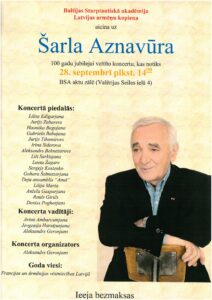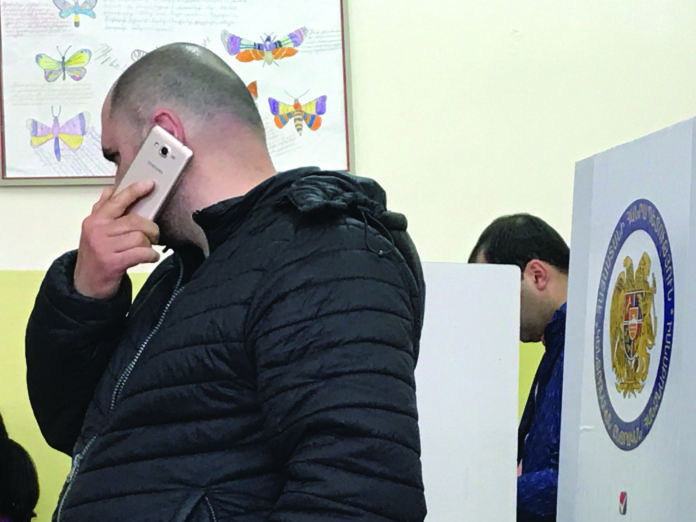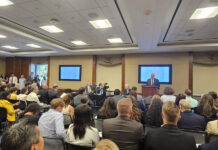By Judith Saryan
Special to the Mirror-Spectator
YEREVAN and BOSTON — Twenty-five years after Armenia became independent from the former Soviet Union, the country still struggles with economic stagnation, political corruption, and high levels of poverty. I wanted to learn firsthand why the political system in Armenia does not work. I didn’t know if, as a member of the Armenian diaspora, I would be welcome. The local Armenians might well see me as an interloper, someone who didn’t understand the realities of life in Armenia. Even though my family came from Western Armenia, now Turkey, I felt a strong connection with this surviving piece of the homeland.
Several of my friends in Boston tried to dissuade me from my decision. It would not be safe, they argued, and it would not make a difference. Safety was a concern for me, but it would be much safer for me, to monitor the elections than for someone from Armenia. The Armenian government did not have leverage over me or my family. If something happened to me, the news media might report on it. The locals, on the other hand, took risks to vote their conscience. I had heard stories about intimidation in the workplace and from family members. Social networks are crucial in Armenia.
I arrived in Yerevan on March 29, four days ahead of the elections, with little idea what to expect other than a training session offered by Citizen Observer, an organization created in 2013 by local NGOs that encourage democracy building in Armenia. I was surprised to find out that I would need to arrive at least an hour before polls opened at 8 am and stay until the polls closed and ballots were counted. The whole process could last 25 hours.
I attended the training session, which condensed a lot of technical information in a short period of time. The trainer clearly understood the rules, but had a challenging time explaining the details because of all of the permutations. Fortunately, I met a young woman from Fresno, California, who lived in Armenia and had participated as an election observer in the past five elections. She filled me in on the most important things to watch for: ballot stuffing and dishonest officials. She suggested bringing at least three bananas for quick energy. We were told not to eat any food offered to us.
Early on Sunday morning April 2, I caught a taxi to my polling station at the Hagop Oshagan School in a relatively nice neighborhood of Yerevan. I introduced myself to the various members of the local election committee. I was greeted enthusiastically by a woman who had been an observer in prior elections. Most of the other committee members eyed me with curiosity and suspicion. My local counterpart citizen observer, a young man originally from the US, had lived in Armenia for about nine years. One unusual feature of the process was the inclusion of individuals from the various political parties who participated as proxy observers. Each party was allowed to have two proxies per precinct, and they were supposed to observe and not interfere with the voters. Even before the voters arrived, the room was crowded.








